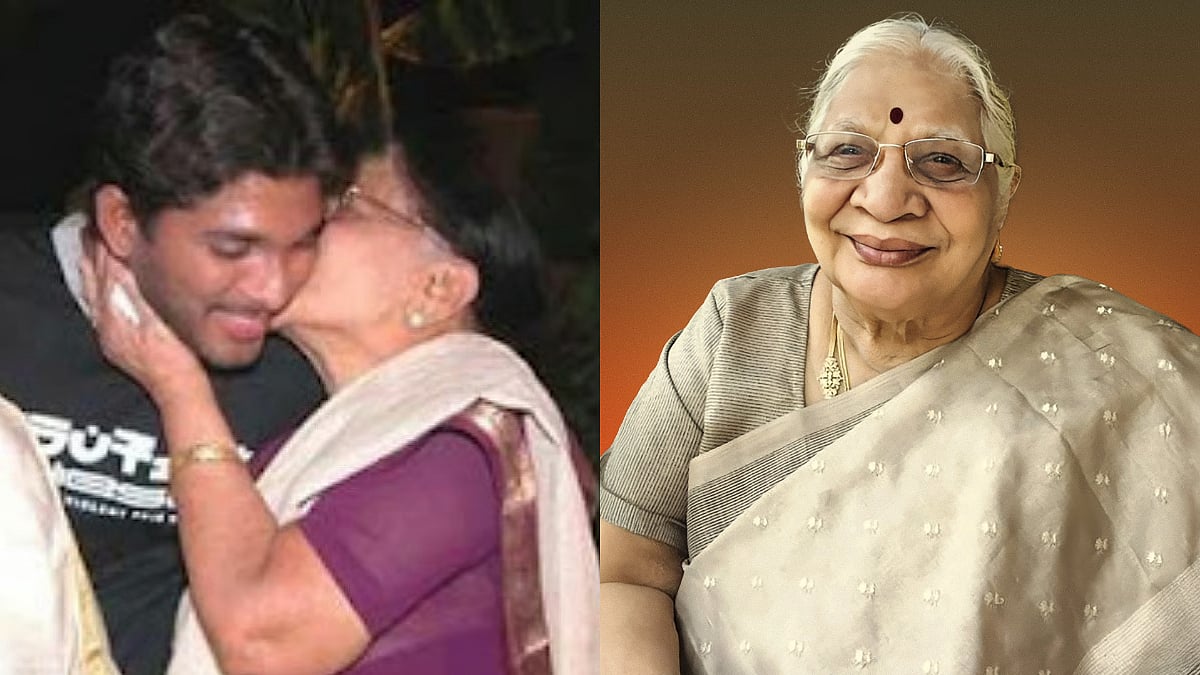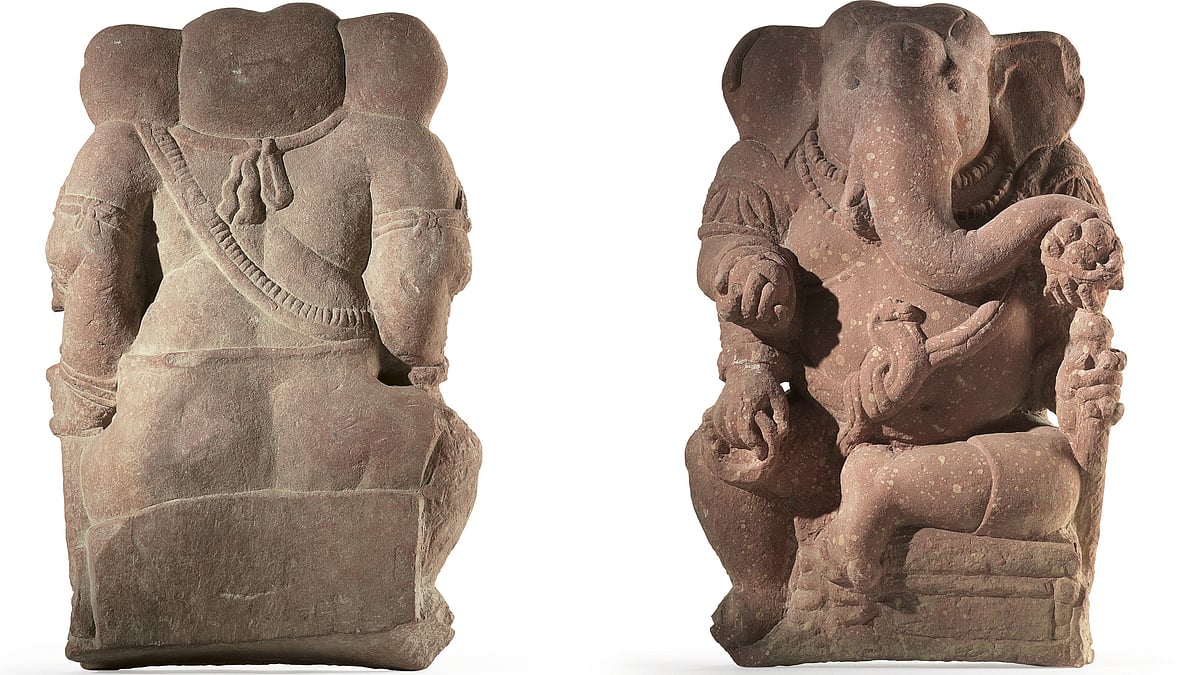Six months ago, when fashion designer Mahec Mehta learned that she was pregnant, her immediate reaction was one of uncertainty. “I knew that it was not safe for us to go to the hospital. I turned to my husband and asked him what we were going to do,” she says. Mehta’s pregnancy is among the projected 23 lakh predicted pregnancies that are an unintended consequence of the nation-wide lockdown. And the couple is in good company – last month, actors Kareena Kapoor and Saif Ali Khan announced that their second baby was on its way. Anushka Sharma and Virat Kohli are celebrating their first pregnancy as are Hardik Pandya and Natasha Stankovic. Although there is some debate about whether the term extends to babies born of the lockdown or during it, social media has already dubbed these new arrivals as ‘coronial babies’.

When Anushka Sharma and Virat Kohli shared the 'Good news' on social media | Anushka Sharma/ Instagram
As Mehta will attest, the decision to have a baby during an ongoing pandemic can be a difficult one. She explains, “The uncertainty about lockdown guidelines for pregnant women, coupled with the fact that we are a higher risk group, made the experience slightly unnerving.” Dr Sapna Bangar, a psychiatrist at MPower adds that being socially isolated during an event when the happy couple are usually surrounded by family and fears about transmission add to the stresses of expectant mothers. “Pregnant women go through many hormonal changes, especially in their first and last trimesters, which leads of anxiety. When compounded by the pandemic, many mothers-to-be are becoming excessively worried about putting themselves and their families at risk. From avoiding routine check-ups to compulsively washing their hands to the extent that they damage their skin, their anxiety manifests in several unhealthy ways,” adds Dr Nahid Dave, a psychiatrist at Insight Clinic. She and Dr Bangar say that the most important step an expecting couple can take during this time is to be prepared with facts and to plan.
Rest easy
“Even if you do test positive for COVID-19, the chances of you it transmitting to your baby through the placenta or during delivery are very negligible (between 2 and 4 percent, as per various studies). The majority of babies born during lockdown are doing very well,” says Dr Vaishali Joshi, obstetrician and gynaecologist at Kokilaben Hospital. It is important, however, to be very vigilant about social distancing (even within the house), avoid unnecessary outings and social interactions, and improve your immunity with good nutrition, rest and exercise, she adds. If necessary, supplement your diet with Vitamin C and D, and folic acid supplements.

Saif Ali Khan and Kareena Kapoor are expecting baby number two! |
Virtual v/s in-person
To reduce risk of exposure, online consultations are taking the place of physical check-ups. “We connect over video calls with the mother-to-be and make a note of her medical history, co-morbidities (if any) and travel history. We also check if they or any of their family members have been experiencing COVID-19-related symptoms over the past ten days,” says Dr Milloni Gadoya, a gynaecologist at Apollo Spectra Hospital. However, she warns that certain tests and examinations must be conducted in person – during the first trimester, a sonography is conducted to check if the pregnancy is inside the uterus. This typically occurs in the sixth of seventh week. Besides this, basic blood tests, a urine sugar test and a thyroid test are administered after the 11th or 12th week. Two more sonographies are administered – one in the 11th – 13th week and another in the fifth month. “Choose a good clinic that is meticulous about its hygiene and sanitation. When stepping out, make sure you wear a mask and a face shield. If possible, also cover your eye area with glasses,” she advises.
Dr Joshi says that, to minimise visits, doctors are administering various tests and immunisations in single visits. Between the fifth and seventh months, couples must register at a hospital for delivery. Most large hospitals have enabled online registrations. Should any complications arise, the mother-to-be can physically visit the registered hospital at any time; she will be attended to. Dr Surabhi Siddhartha, consultant obstetrician and gynaecologist at Motherhood hospital says that doctors may advise more frequent visits after the eighth month. This, however, varies on a case-by-case basis.
Limit contact
“Many women assume that it is safe to drop their guard after delivery. We have found that mothers with days-old babies are testing positive. It is essential to continue to maintain all social distancing and hygiene norms, such as wearing a mask while feeding the baby and not allowing any other family member to hold or kiss the baby. Only let one other caregiver handle the baby,” says Dr Gadoya.

Natasa Stankovic with her baby boy, Agastya | Natasa Stankovic/ Instagram
Happy mothers birth healthy babies
“Today, everyone has an (ill-informed) opinion about pregnancy during COVID-19. It’s important for expecting couples to only seek information from credible sources. Additionally, limit the amount of information you receive, especially negative news or conversations. Simply reading the headlines for 10 minutes a day is enough to understand what is happening around the world. Avoid television news as this can contribute to anxiety,” says Dr Dave. Dr Bangar adds that it is important to develop and stay connected with your support system.
“If your family or friends fail to extend the necessary support, look to social media for groups for women who have become pregnant during the pandemic. Talking to these women and knowing that there are others going through the same challenges as you can help. Make sure you talk about your emotions, especially when you feel overwhelmed. Sometimes, all it takes is the right perspective and to know that things aren’t going to be as bad as they seem right then,” she adds. Dr Dave cautions that if you find yourself compulsively washing your hands, being unable to sleep well, experiencing very vivid and disturbing dreams, continuously expecting the worst outcomes and are unable to distract yourself, consider seeking professional help.











